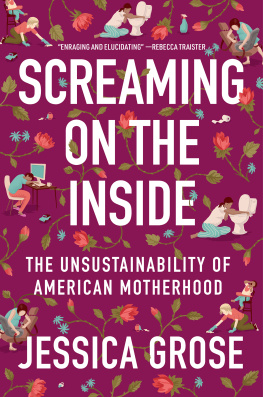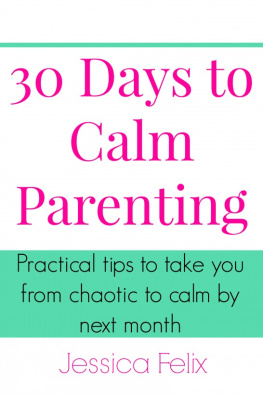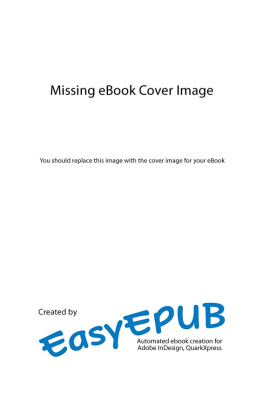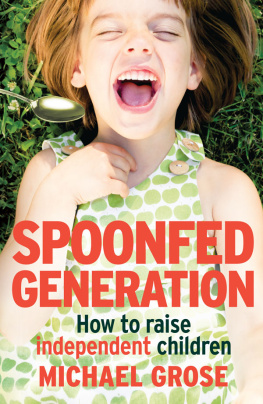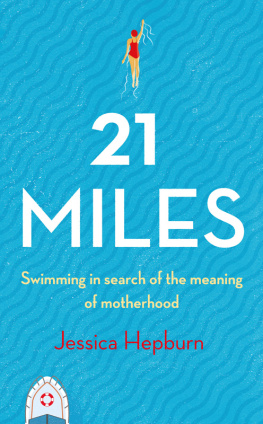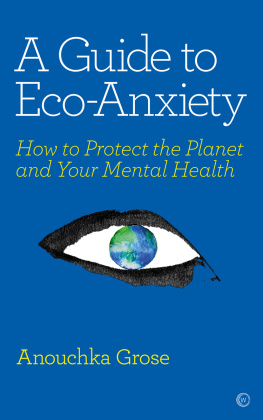Contents
Guide
To my daughters
I failed at ideal motherhood before I even had a child. I felt as if I had ruined it all by the time I was six weeks pregnant with my older daughter.
I thought I had done everything correctly. I was twenty-nine when I got pregnant because I had read the statistics about how much harder it is to conceive as you get into your thirties.
I was financially stable and happily married and college educated and debt-free.
I had begun a shiny new job in a leadership role, because Sheryl Sandberg said, Dont leave before you leave, in a TED Talk, which is to say, if youre ambitious, dont take your foot off the gas pedal in your career before you even have children. Despite priding myself on not being the type of chump seduced by TED Talk platitudes, especially those delivered by Facebook executives, Im embarrassed to say I listened to this one.
I went off antidepressants to conceive because I felt I needed to be as natural as possible. I still dont know where I got this notion, except from the maternal expectations that had seeped into me through some kind of demented osmosis. The doctors around me didnt tell me I had to get off the medication, but they didnt stop me from going off it, either. None of them told me the relapse rate for pregnant women who discontinue their antidepressants may be as high as 68 percent.
I found out I was pregnant on my second day of that shiny new job, and I had about a week of grace before it all fell apart. I started vomiting uncontrollably, at least five times a day. Some days I held nothing down at all. I had breakthrough bleeding at seven weeks. My depressive and anxious symptoms came roaring back shortly after I started throwing up, ultimately becoming so extreme that I could barely leave the house because I was afraid of both barfing on the subway and sarin gas attacks.
Though I had covered family policy as a journalist, it had never fully registered for me that you needed to work somewhere for a year to qualify for even unpaid parental leave through the Family and Medical Leave Act.
I had to tell my new boss I was pregnant very early on because I was so sick, and while he was sympathetic as a human, the systems surrounding us could not support what I was going through. When I realized that it would be a struggle to get short-term disability, and that my job might not ultimately be protected, I quit. I figured I probably would have been fired soon anyway because I was doing such an awful job. I assumed my career was finished.
To quit was an act of privilege. I had health insurance through my husbands job, and we had no debt and our own safety nets, not to mention parents who could support us if it came to that. But quitting was also an act of self-preservation. I did not think I would survive my pregnancy if I did not put my own health before my employment. It was the right choice in retrospect, even if it took me years to feel halfway decent about making it.
My very early failure at doing motherhood right served as a moment of revelation. It became crystal clear to me that you could do everything that American society pressures you to do as an individual and as a mother, and if anything goes wrong, not only are you on your own, but you will also be either tacitly or explicitly blamed for your deviation. I have devoted much of my career since then to revealing how morally bankrupt so many of these ideals are.
In 2020, that moment of revelation hit nearly every mother in the United States. When the shit hit the fan during the COVID-19 pandemic, and all the rickety systems of care, school, and health collapsed in an instant, we all learned how alone we were. We were expected to teach our children, perform our jobs, and keep everyone in our orbit healthy, sometimes all in the same minute. We decided to have babies in the first place, so how dare we demand any help at all?
But while the parenting fiasco of COVID-19 was a crisis, it was also the culmination of more than two hundred years of unrealistic, elitist, and bigoted expectations, and the laws that flowed out of those expectations. What is so insidious about these ideals is that they shape-shift; they reflect whatever is in voguebut at their core is always self-abnegation.
In the early days of colonial America, the ideal was a pious white Christian woman who spun cloth with her baby at her heels and helped keep her children on the straight and narrow path to salvation. Over the next few centuries, new requirements appeared: a focus on creating stalwart American citizens, and an education in scientific child-rearing techniques. God help you if you werent keeping up on the latest expert trend.
In our current era, the perfect mother is a woman who seamlessly melds work, wellness, and home. She is often blond and thin. Her roots are never showing, and she installed that gleaming kitchen backsplash herself (watch her TikTok for DIY tips because the public projection of this perfect motherhood is part of the deal).
She single-handedly runs remote school and still finds time to meditate at 5:00 a.m. Her children are a glossy reflection of her efforts, never a spot on their clothing or a frown on their faces. Even as she is expending maximal effort at home, she still behaves like an ideal worker in her paid employment. The ideal workera term coined by legal and gender scholar Joan Williamsmeans working as if you have no family or health responsibilities.
Even if you consciously reject this litany of demands, they manage to worm their way into you.
What is obvious about these standards when you see them written out this way is not only how absurd they are, but also how individualistic and superficial these pressures can be. They have nothing to do with your private relationship with your own children, your values, or your needs.
The truth is that parenting cannot follow a recipe; theres no foolproof set of rules that will result in a perfectly adjusted child. Every parent has different values, and we will have different ideas about how to pass those values along to our children. While writing and researching this book, I spoke to around a hundred mothers, and my ultimate takeaway is that there are so many ways to raise healthy thriving children. What successful parenting has in common is not a particular set of rules, but close observation of the kind of unique humans our children are. As my opa, who was a family doctor in a small town, used to say, you cannot raise a daisy like an orchid.
The other thing that is noteworthy about the contemporary set of expectations is they dont engage with the broader community in any way, shape, or form. Rarely do babysitters, teachers, grandparents, aunties, uncles, or friends appear in heralded images of motherhood that are beamed into our phones. If the pandemic taught us anything, it should have taught us that we need to invest in our local, national, and international ties to raise the next generation.
No country in the entire world that is as wealthy as the United States gives as little to parents. Though there have been tremendous gains for mothers at work in the past fifty years, we still do not have federal paid parental leave or consistently subsidized childcare. Even parents in two-income families fear financial insecurity. The costs of childcare continue to soaras one mother put it to me: I pay pretty much my rent in day care. And student loan bills haunt millions of parents, with no realistic hopes of forgiveness.
But I believe the pandemic has changed the game. In my decade-plus of covering work and family, more people of all political persuasions are talking about paid leave, the costs of childcare, and universal pre-K at the federal level than I have ever observed before.

